第54章 CHAPTER IX(1)
At certain moments during the days that followed the degree of tension her relationship with Ditmar had achieved tested the limits of Janet's ingenuity and powers of resistance. Yet the sense of mastery at being able to hold such a man in leash was by no means unpleasurable to a young woman of her vitality and spirit. There was always the excitement that the leash might break--and then what? Here was a situation, she knew instinctively, that could not last, one fraught with all sorts of possibilities, intoxicating or abhorrent to contemplate; and for that very reason fascinating. When she was away from Ditmar and tried to think about it she fell into an abject perplexity, so full was it of anomalies and contradictions, of conflicting impulses; so far beyond her knowledge and experience. For Janet had been born in an age which is rapidly discarding blanket morality and taboos, which has as yet to achieve the morality of scientific knowledge, of the individual instance.
Tradition, convention, the awful examples portrayed for gain in the movies, even her mother's pessimistic attitude in regard to the freedom with which the sexes mingle to-day were powerless to influence her. The thought, however, that she might fundamentally resemble her sister Lise, despite a fancied superiority, did occasionally shake her and bring about a revulsion against Ditmar. Janet's problem was in truth, though she failed so to specialize it, the supreme problem of our time: what is the path to self-realization? how achieve emancipation from the commonplace?
Was she in love with Ditmar? The question was distasteful, she avoided it, for enough of the tatters of orthodox Christianity clung to her to cause her to feel shame when she contemplated the feelings he aroused in her. It was when she asked herself what his intentions were that her resentment burned, pride and a sense of her own value convinced her that he had deeply insulted her in not offering marriage. Plainly, he did not intend to offer marriage; on the other hand, if he had done so, a profound, self-respecting and moral instinct in her would, in her present mood, have led her to refuse. She felt a fine scorn for the woman who, under the circumstances, would insist upon a bond and all a man's worldly goods in return for that which it was her privilege to give freely; while the notion of servility, of economic dependence--though she did not so phrase it--repelled her far more than the possibility of social ruin.
This she did not contemplate at all; her impulse to leave Hampton and Ditmar had nothing to do with that....
Away from Ditmar, this war of inclinations possessed her waking mind, invaded her dreams. When she likened herself to the other exploited beings he drove to run his mills and fill his orders,--of whom Mr. Siddons had spoken--her resolution to leave Hampton gained such definite ascendancy that her departure seemed only a matter of hours.
In this perspective Ditmar appeared so ruthless, his purpose to use her and fling her away so palpable, that she despised herself for having hesitated. A longing for retaliation consumed her; she wished to hurt him before she left. At such times, however, unforeseen events invariably intruded to complicate her feelings and alter her plans. One evening at supper, for instance, when she seemed at last to have achieved the comparative peace of mind that follows a decision after struggle, she gradually became aware of an outburst from Hannah concerning the stove, the condition of which for many months had been a menace to the welfare of the family. Edward, it appeared, had remarked mildly on the absence of beans.
"Beans!" Hannah cried. "You're lucky to have any supper at all. I just wish I could get you to take a look at that oven--there's a hole you can put your hand through, if you've a mind to. I've done my best, I've made out to patch it from time to time, and to-day I had Mr. Tiernan in. He says it's a miracle I've been able to bake anything. A new one'll cost thirty dollars, and I don't know where the money's coming from to buy it.
And the fire-box is most worn through."
"Well, mother, we'll see what we can do," said Edward.
"You're always seeing what you can do, but I notice you never do anything," retorted Hannah; and Edward had the wisdom not to reply.
Beside his place lay a lengthy, close-written letter, and from time to time, as he ate his canned pears, his hand turned over one of its many sheets.
"It's from Eben Wheeler, says he's been considerably troubled with asthma," he observed presently. "His mother was a Bumpus, a daughter of Caleb-descended from Robert, who went from Dolton to Tewksbury in 1816, and fought in the war of 1812. I've told you about him. This Caleb was born in '53, and he's living now with his daughter's family in Detroit.... Son-in-law's named Nott, doing well with a construction company. Now I never could find out before what became of Robert's descendants. He married Sarah Styles" (reading painfully) "`and they had issue, John, Robert, Anne, Susan, Eliphalet. John went to Middlebury, Vermont, and married '"
Hannah, gathering up the plates, clattered them together noisily.
"A lot of good it does us to have all that information about Eben Wheeler's asthma!" she complained. "It'll buy us a new stove, I guess.
Him and his old Bumpus papers! If the house burned down over our heads that's all he'd think of."